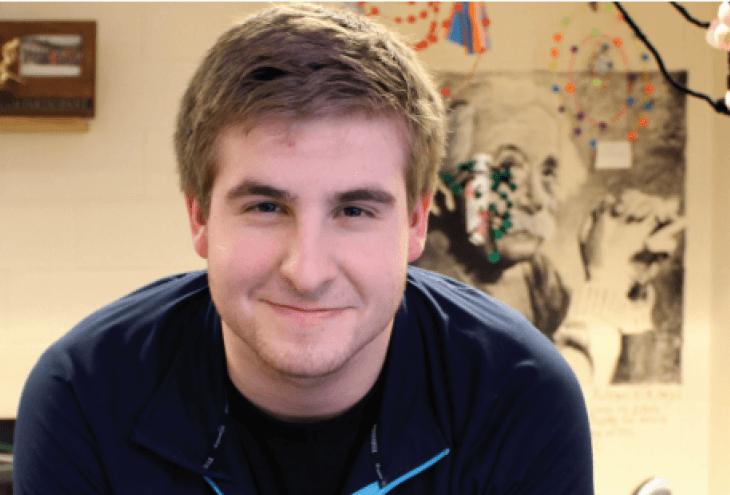These days Trentin Russell, 17, watches the Cloquet Senior High School wrestling team from the sidelines, but he’s not uninvolved. Even though a shoulder injury keeps him from participating with his teammates, Russell does as much as he can — even if that means operating the scoreboard.
His enthusiasm for school doesn’t stop with sports. A member of the Fond du Lac Band of Lake Superior Chippewa, Russell can be spotted just about anywhere around his high school in Cloquet, Minn., where he is a junior. If he is not on the field with football or wrestling, Russell has a hand in Knowledge Bowl, the Junior Executive Board, and Student Council. He also shares what he has learned with other Native teenagers through the Minnesota Indian Education Association, where he helps out whenever possible. However, Russell says that he finds his real passion in the classroom.
For the past five years, Russell has been enthralled by the sciences. His interest was sparked in the seventh grade when he participated in a mandatory science fair and met his future mentor, Dr. Cynthia Welsh. Although at first Russell saw this required research as unappealing, by the time the fair was over, the experience had triggered a revelation.
Russell returned to science fairs in the ninth grade, and by then he was fascinated by physics, thanks to the television series Nova. Unlike any other subject, physics clicked in his mind. Suddenly, Russell was exposed to a field that investigated the order of the natural world, from black holes to particles. When he had run the episodes dry, he returned to Welsh in hopes of exploring this field of science for himself. Any sort of physics project became Russell’s priority.
Welsh offered Russell an introduction to Dr. Richard Gran and Dr. Alec Habig, physics professors who study neutrinos at the University of Minnesota Duluth. With their help, Russell embarked on a study of particle physics, beginning with constructing a small cosmic ray detector. Russell used the device to determine whether red dots on a display were indications of neutrinos. “I had no idea what neutrinos were. They sounded boring to me,” he admits, “but that was really where the basis of physics starts.” This introduction became a springboard for his research in physics, the science of the motion of matter through space and time.
More recently, Russell has chosen to take time from his own work and become an educator himself. At Churchill Elementary School, Russell mentors a group of fourth-grade students in the Student Spaceflight Experiment Program, where they design experiments that could possibly be performed by astronauts in orbit. He also assists a pair of seventh graders conducting a cosmic ray study of their own.
Although science takes a lot of his time, Russell never forgets to have fun. He enjoys connecting with people and stays positive, bringing his sense of humor to even stressful situations.
Russell attributes much of his success to the lessons of his parents. He explains that they support him in all his endeavors, from science to sports — they’ve never missed a single one of his events. “My dad always taught me to never give up, work hard, and if I wanted something to never let anyone tell me that I can’t do it,” Russell says. He explains that his dad urges him to prioritize finding what interests him, emphasizing that with hard work nothing can stop Russell from achieving his goals. Meanwhile, his mother has been there, side by side with his father, providing a stable financial backing and instruction in his Fond du Lac heritage.
Russell says that he hopes to obtain a degree in physics and a master’s in mathematics and looks forward to participating in scientific debate to further human knowledge. He envisions a career as an educator, teaching in a college or high school classroom.
His work has not gone unnoticed. While Russell was spending his lunchtime and study halls working with other students, Welsh nominated him for the 2016 Donaldson Science Award, presented last January. “When Dr. Welsh told me that she was going to nominate me, I almost brushed it by,” says Russell. “I felt like there were way more people qualified for this award than I was.” When he did win the award, Russell was surprised and grateful. “I thanked Dr. Welsh a thousand times,” he adds.
Following another nomination by Welsh, Russell was named 2015–16 Minnesota Indian Education Association High School Student of the Year. Since then, Russell is back to his experiments, peering into the mysteries of neutrinos in search of how one small thing can affect everything.












